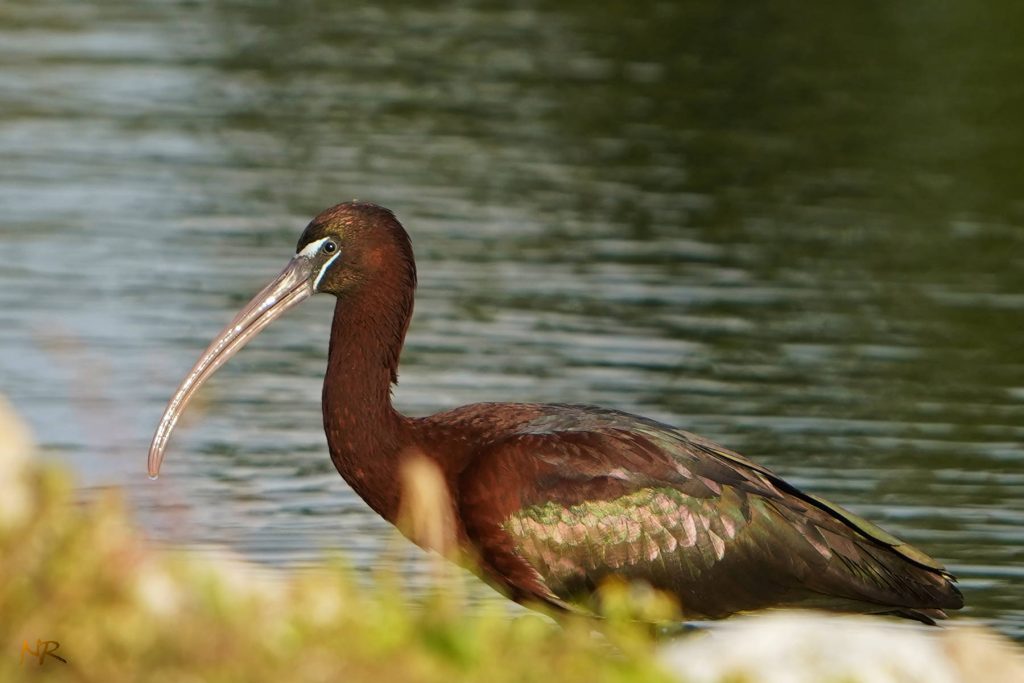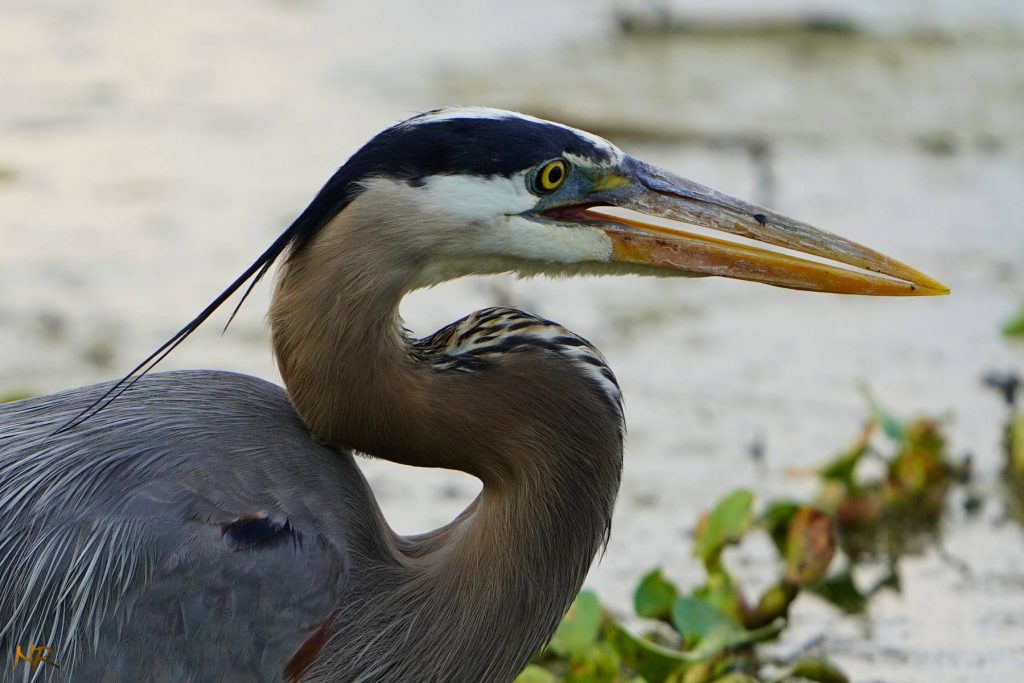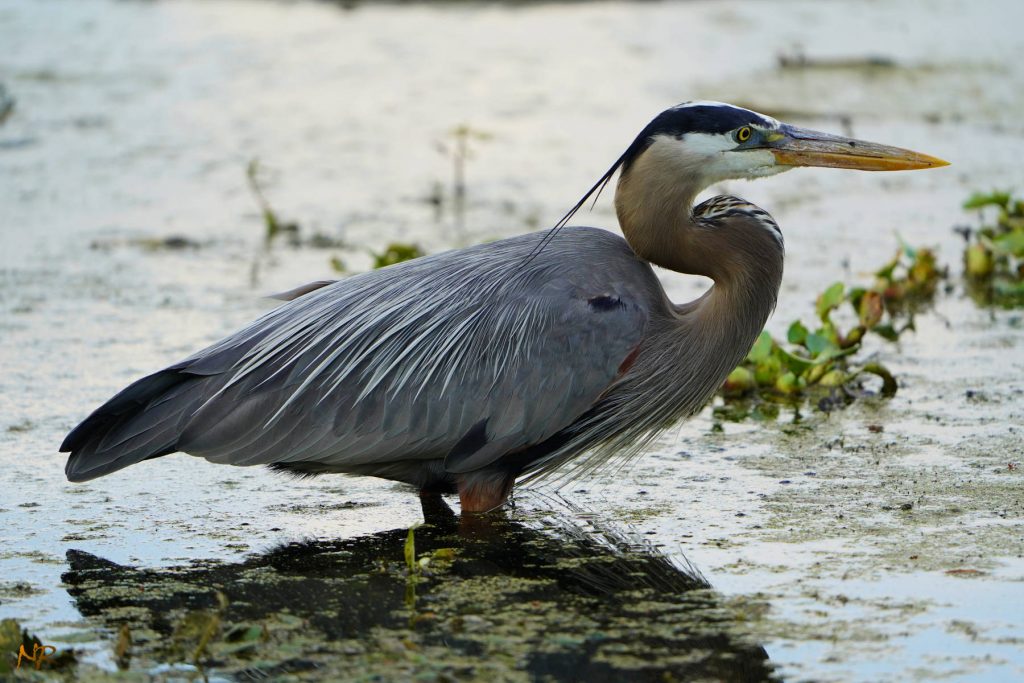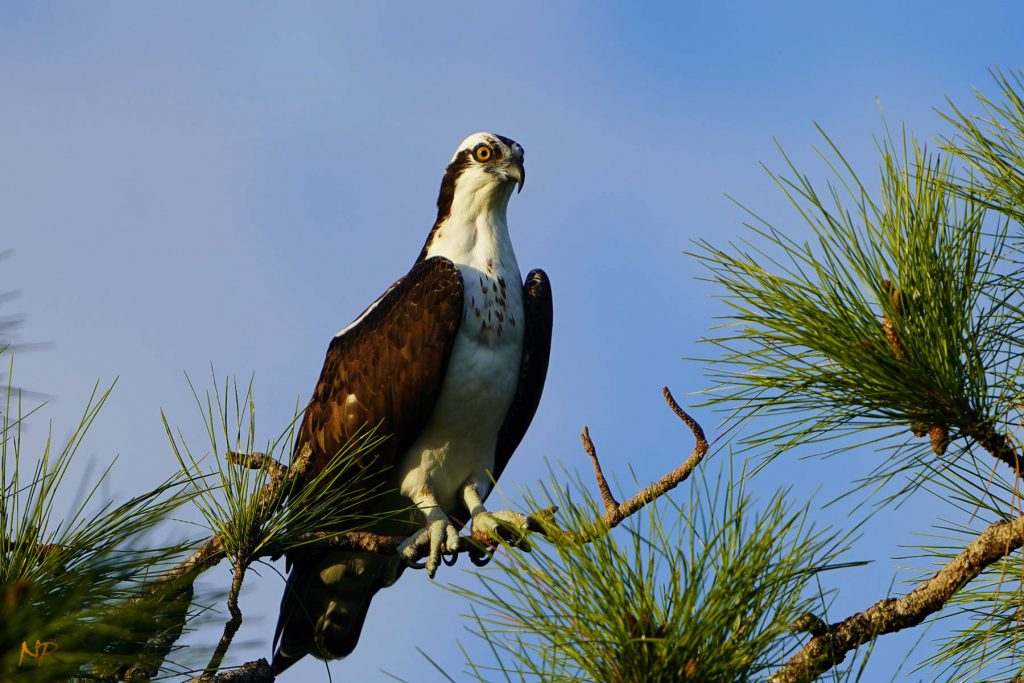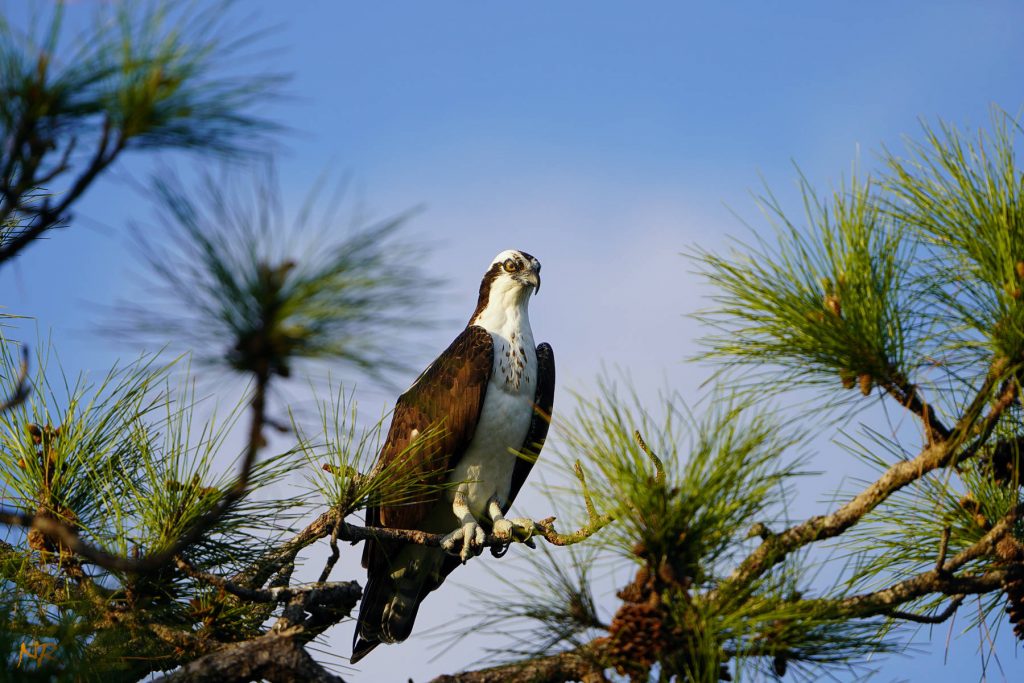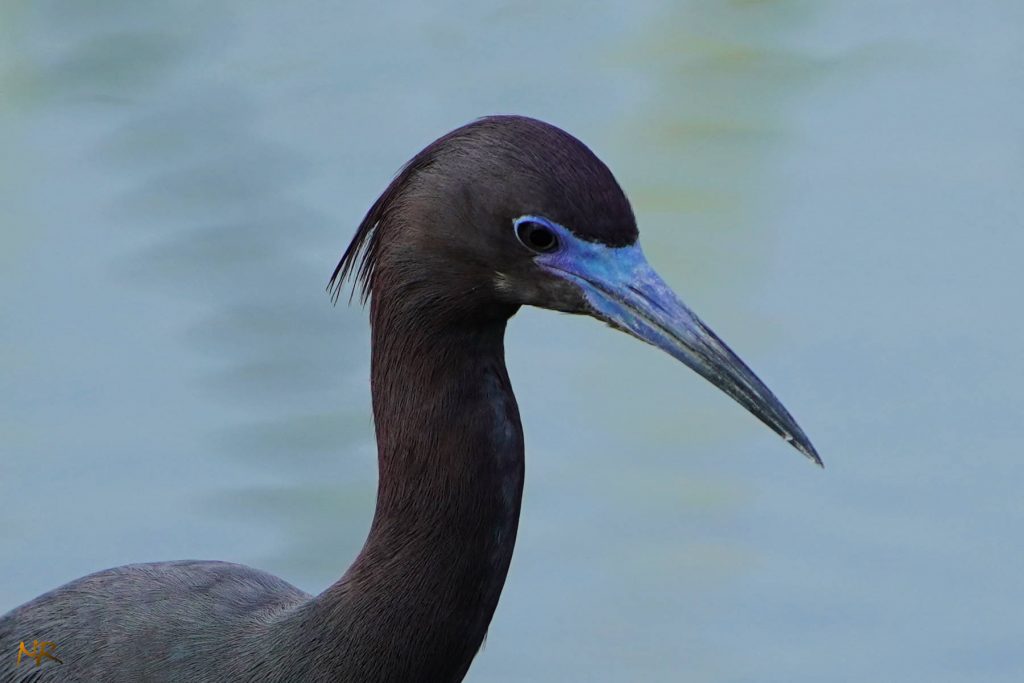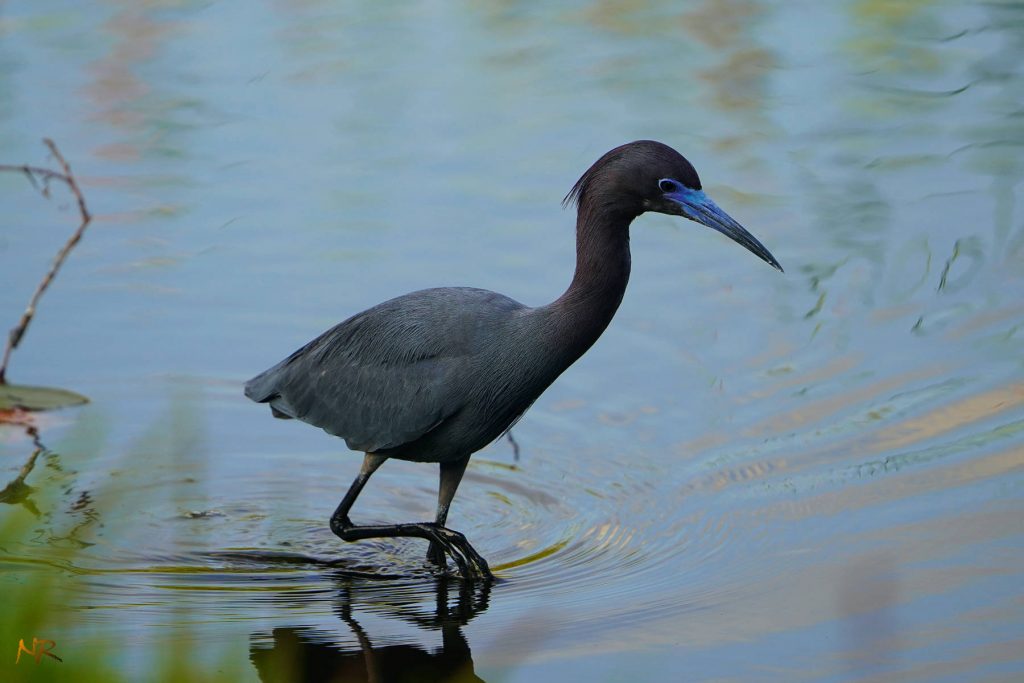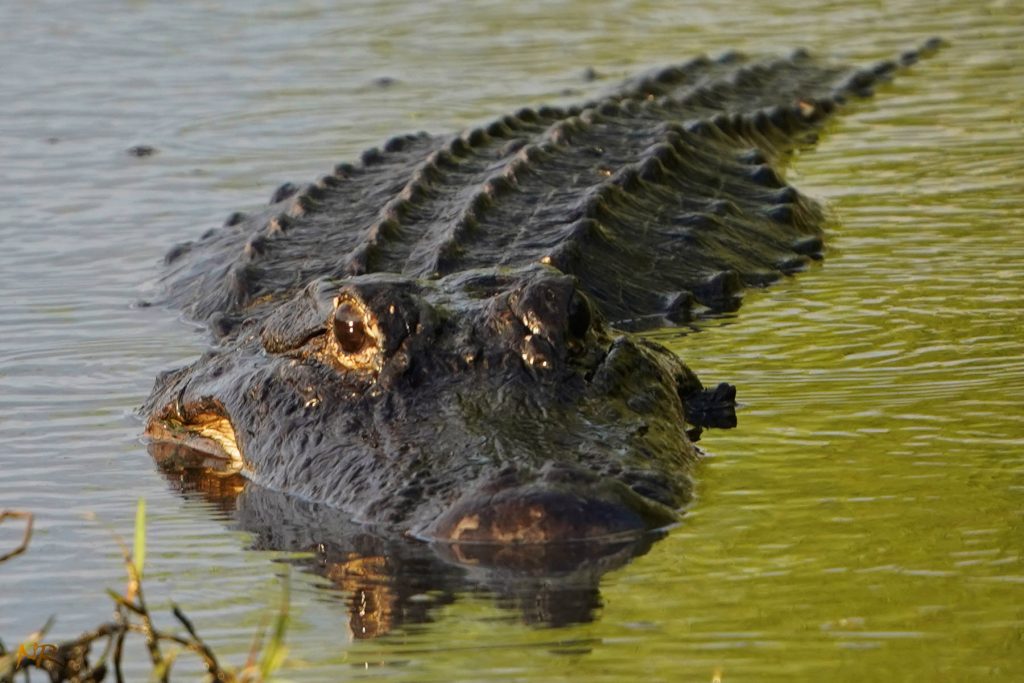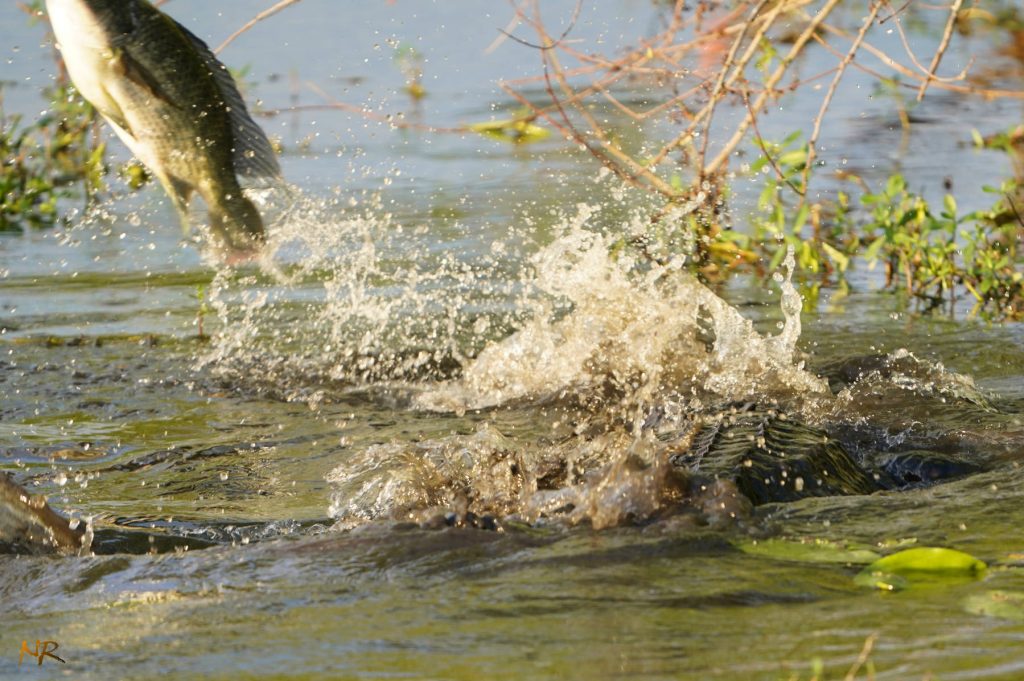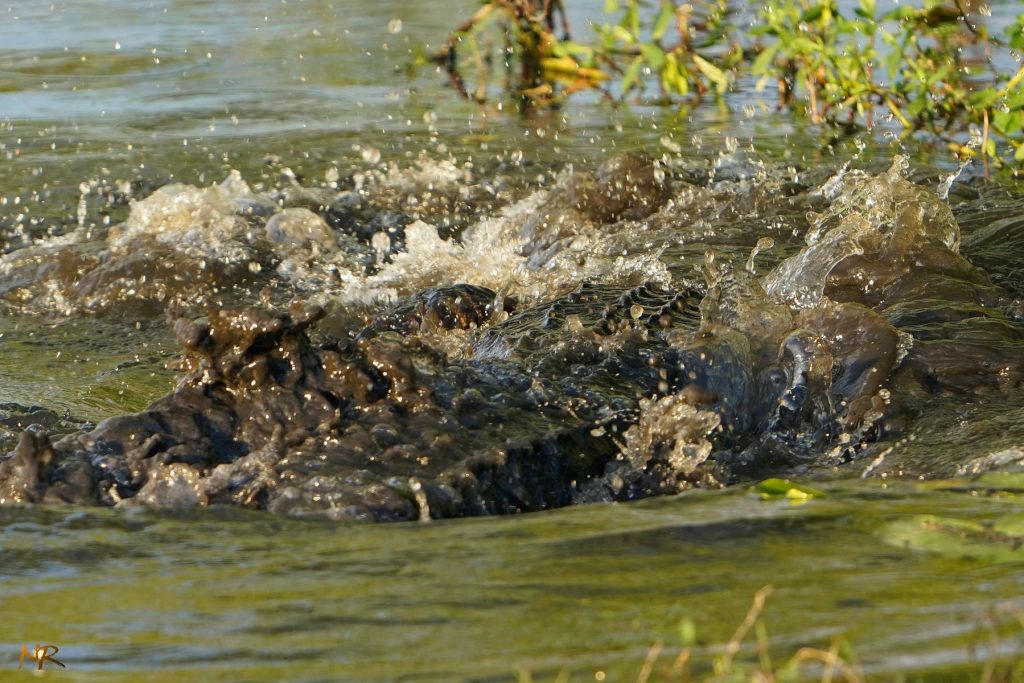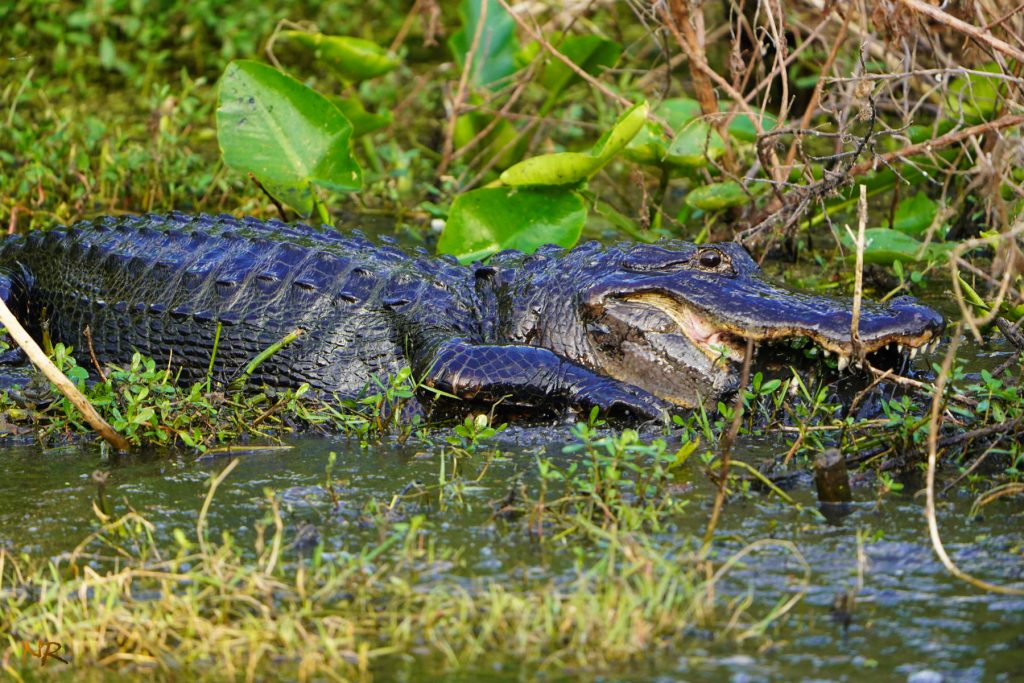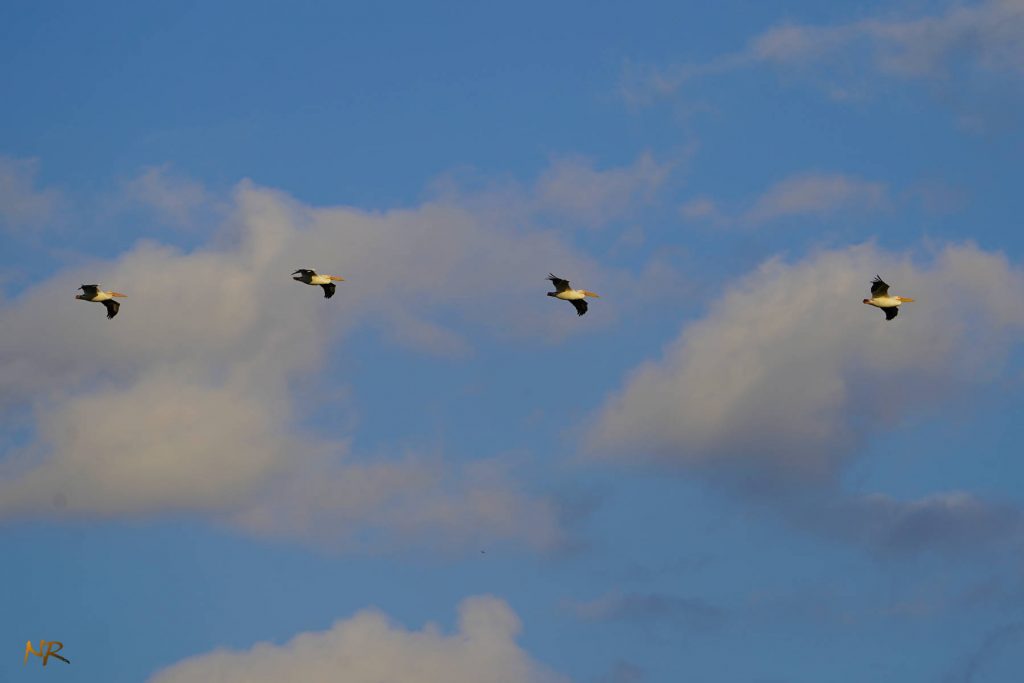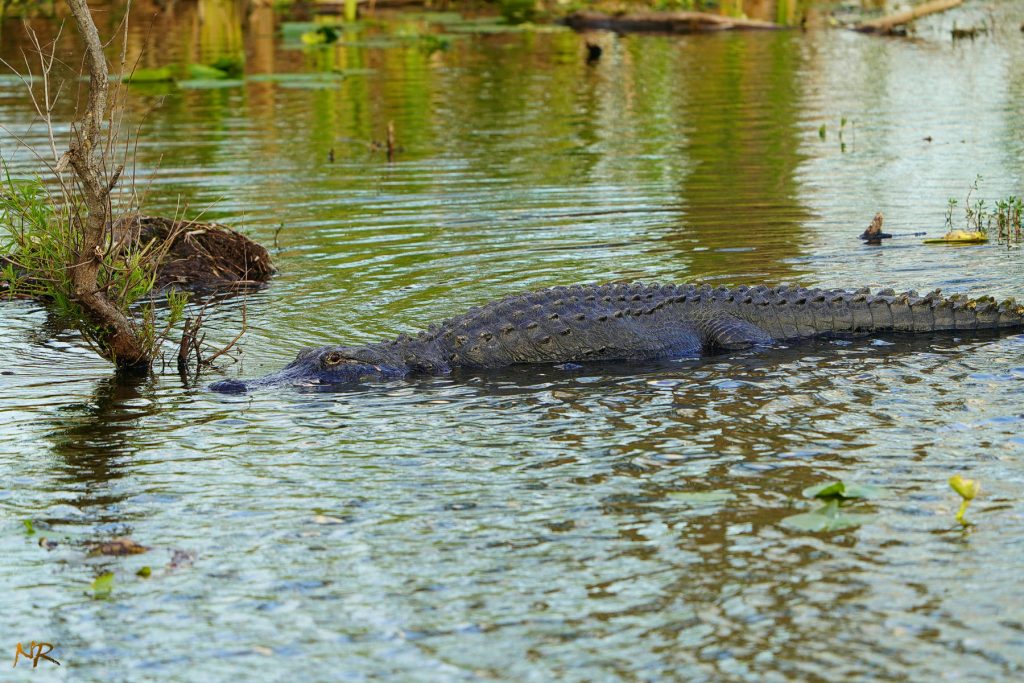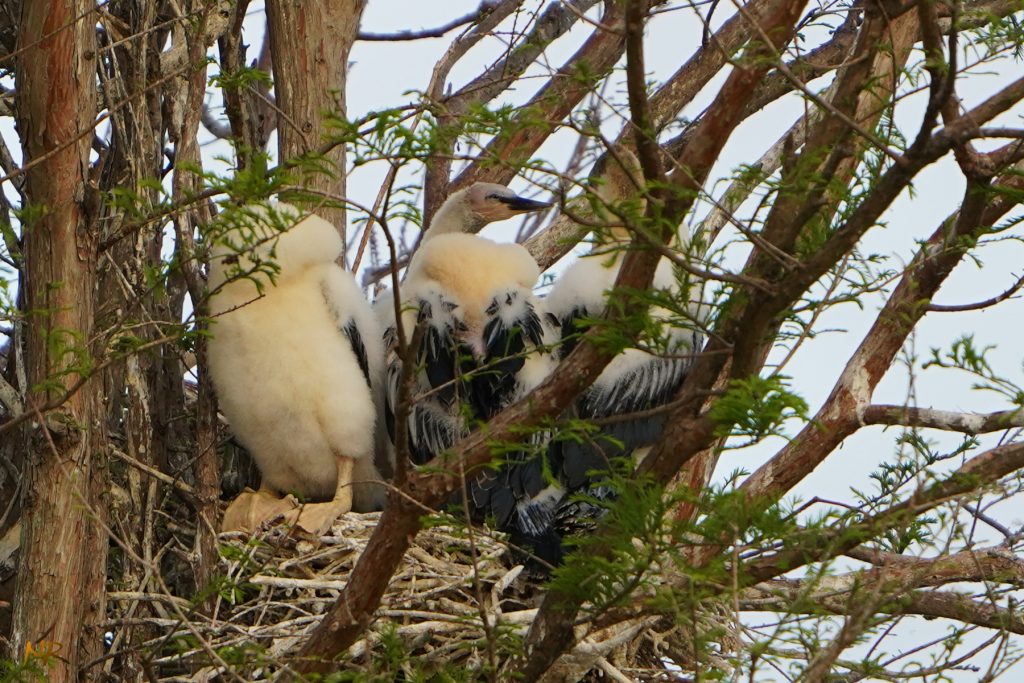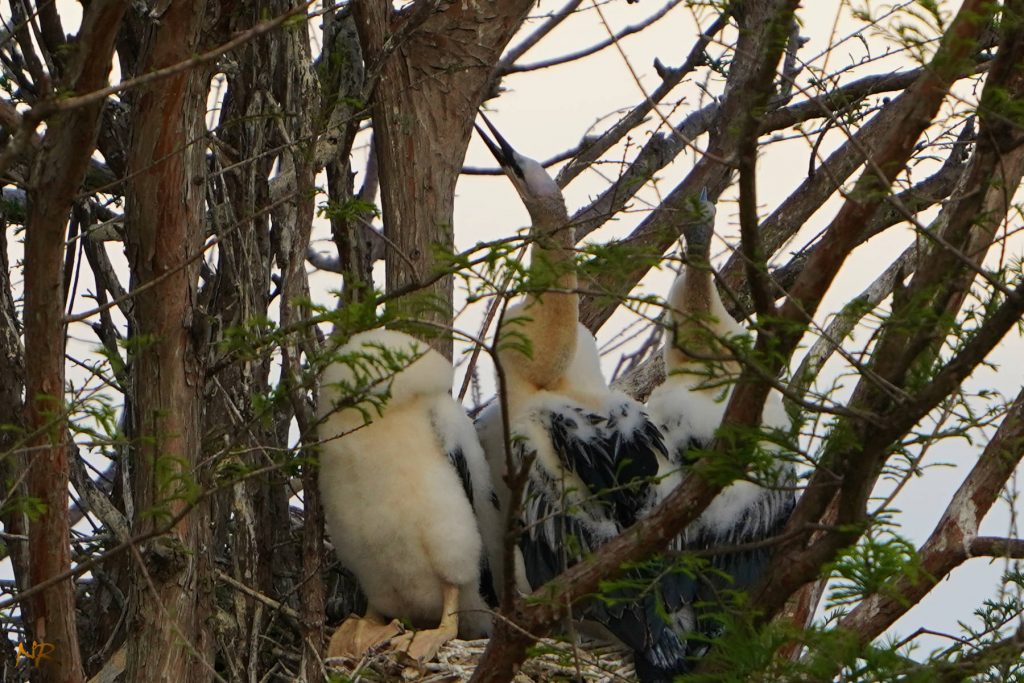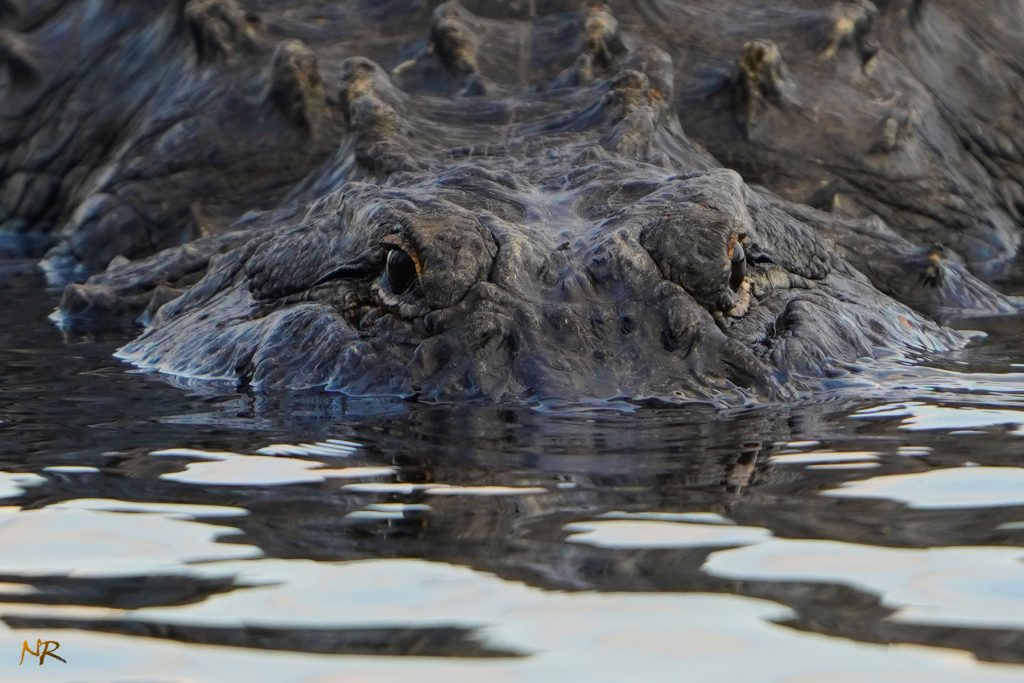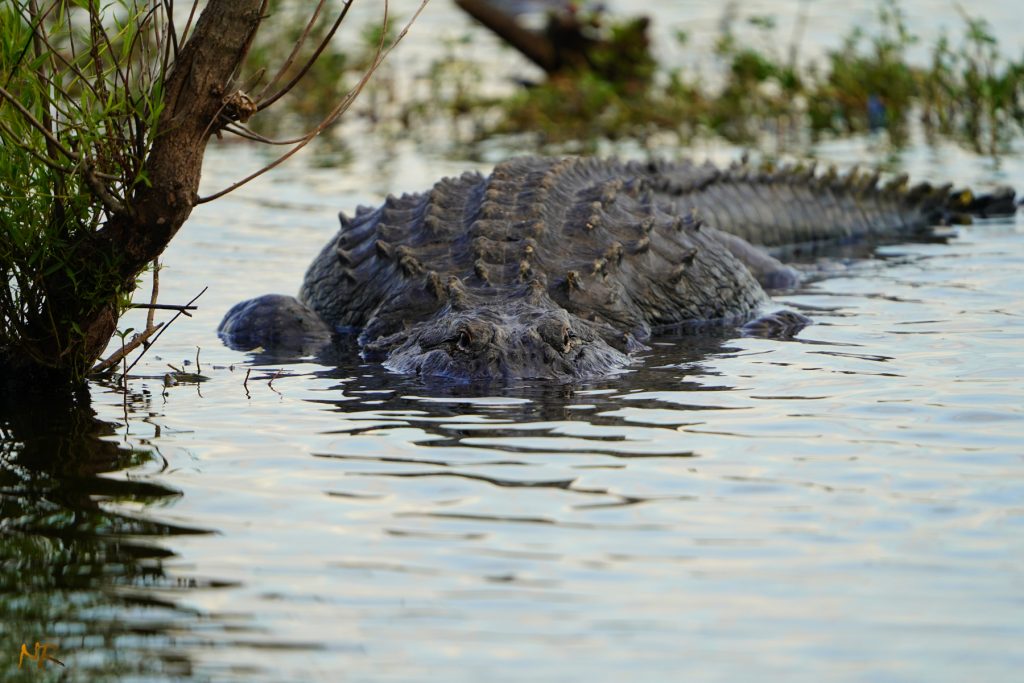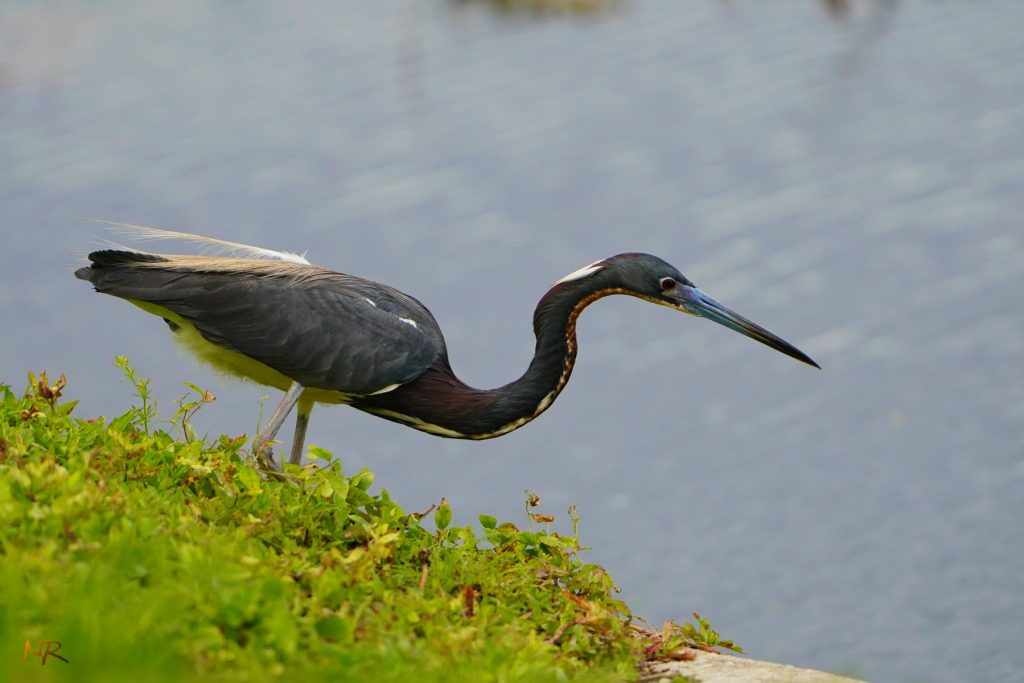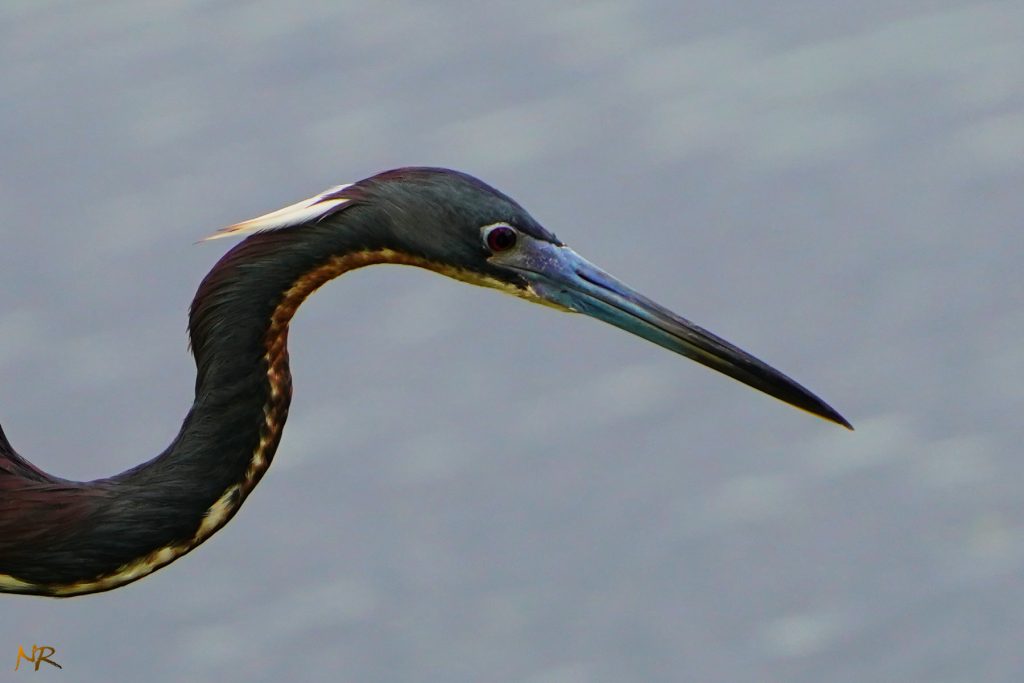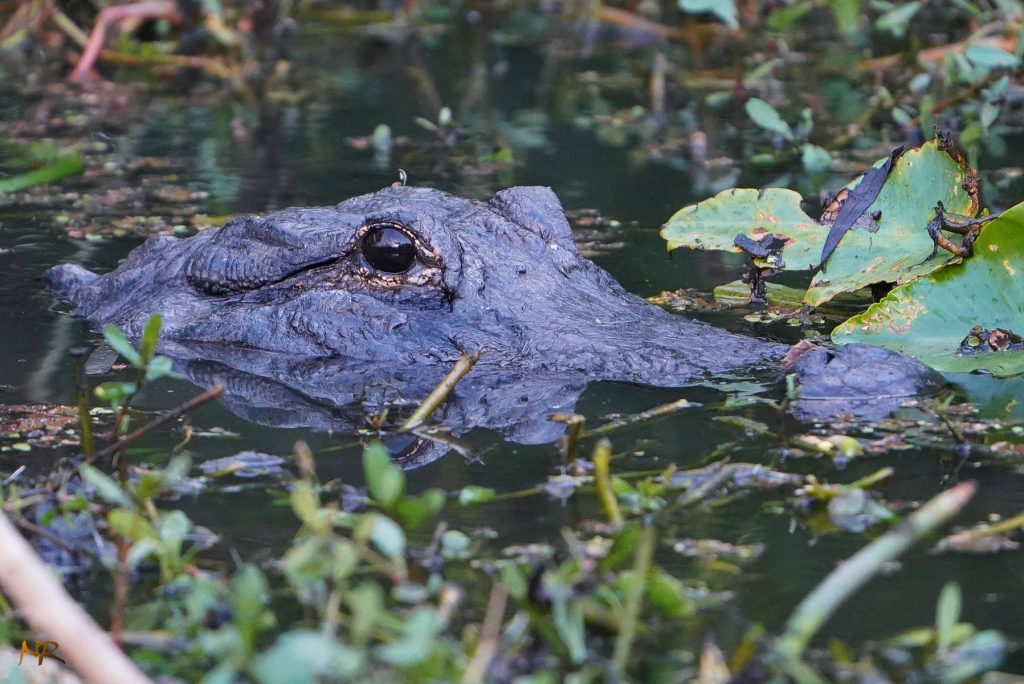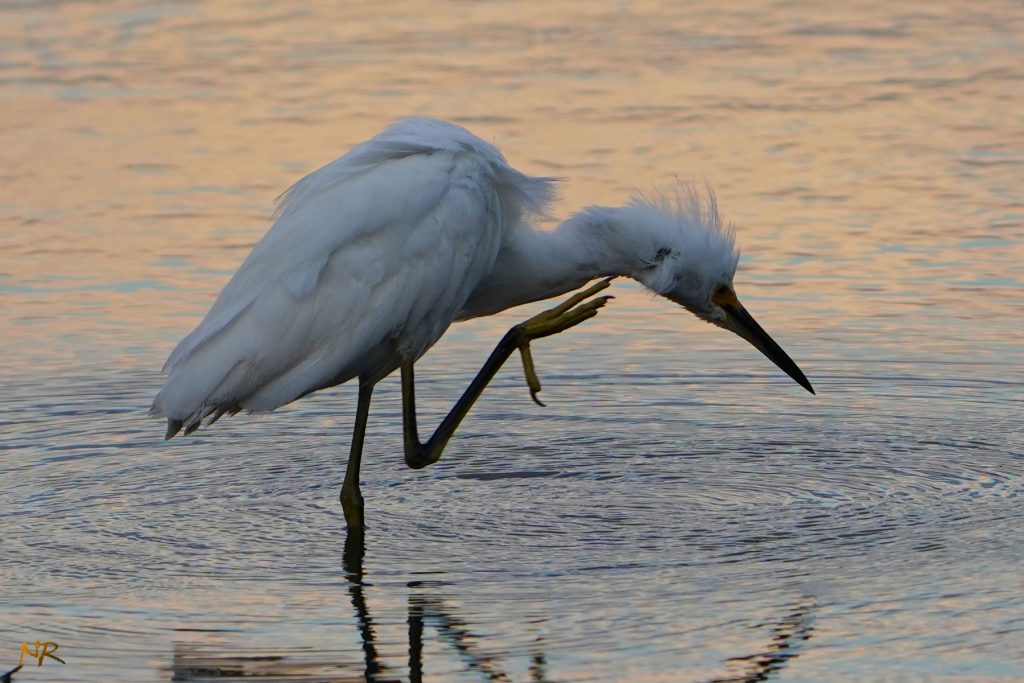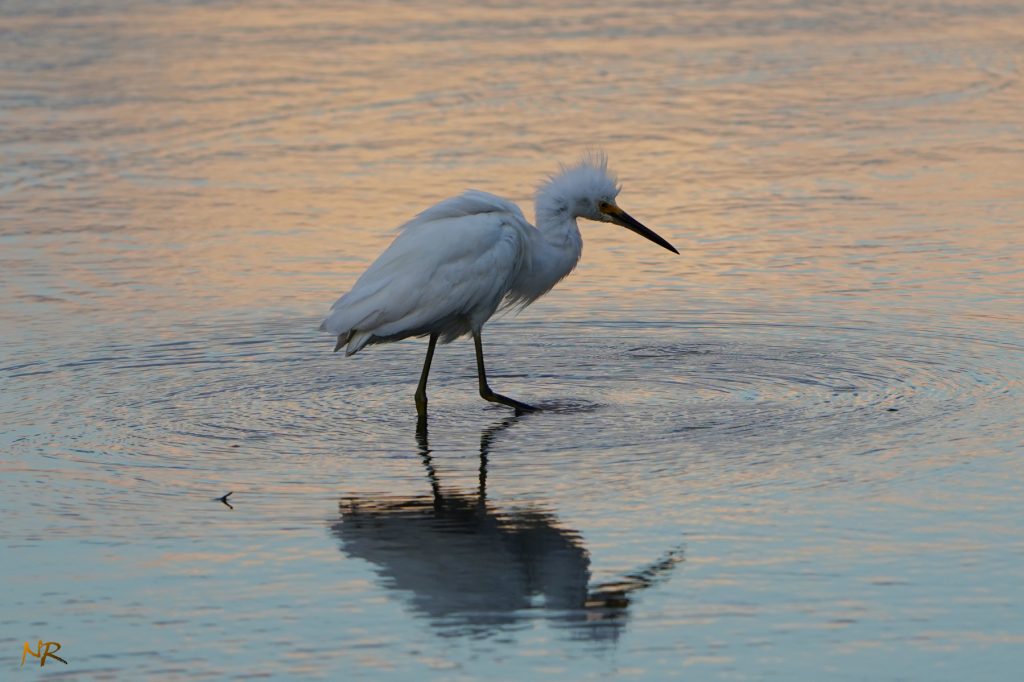The walk along the south edge of Lake Parker took us into contact with many of the creatures that I see on other trails and as expected, birds dominated much of the proceedings.
There was a gorgeous Glossy Ibis, lots of different types of Heron and Egrets, some amazing Osprey and a huge assortment of Gallinules and Water Fowls. Overhead, small clusters of Pelicans were on a southward journey for the evening. The lakeside was literally teeming with activity.
There were also a number of good-sized alligators present and one was guarding her nest waiting for hatchlings, just underneath where an Anhinga nest was, nestled comfortably in a tree overhead.
One of the alligators treated us to a life-and-death struggle as he tried in vain to catch a rather large fish that was nearby in the shallows. It was a rare instance where the fish got away. I felt for the alligator going hungry but glad to think that the fish lives for another day.
I hope you enjoy the selection of images at the bottom of this blog.
It was the notion of nest that stayed in my mind and became today’s blog thought. It is something that almost all creatures do to some degree or other; rearing our young in a protected environment until they can move forward on their own and survive whatever life has to throw at them.
In some cases this period is quite brief and in other cases goes on for years.
I guess it depends on a number of factors, not least of which is survival rate. For us humans this period drags on for many years, where typically our young step out into the wild world around eighteen.
But it is the mental aspect of nesting that I wanted to touch on here; where the young are tended to by their parents to where they feel some degree of safety net against making any fatal errors in their new lives.
While some are thrown in at the deep-end at an early stage, others enjoy the protection of parental figures for much of their lives. Some parents strive deliberately to create independence early on in their child, while others molly-coddle and enable their offspring long after they should have cut the umbilical cord.
At the other end of the equation many young people look to fashion their own independence early on and push hard against any continued act of parenting.
It is difficult to know when in fact cutting the cord and leaving the nest is the right step to take.
I felt very fortunate that my own parents seemed to strike the balance quite perfectly and independence came for me at 18 when I headed off to college. But throughout my life, I always found that they welcomed me back to the nest whenever I got in trouble or needed advice or help.
When they died, the nest died too and became just a fond memory of a time when life’s journey didn’t feel so alone. When you had good parents, there is never a good time to find yourself orphaned.
But the bottom line in all of this is that at some stage we as parents need to take our hands of the handle-bars and let the kids find their own way. Similarly as kids, we need to pedal on our own and find a balance that keeps us moving forward in the right direction and not falling off to the side.
Unlike most creatures in the animal kingdom, our lives aren’t precariously poised in a do-or-die struggle where our very existence depends on whether we left the nest at the right moment. But psychologically such an event and its related timing can be hugely damaging to us and can leave us with emotional scars that never heal.
How many of us know people who have stayed nest-bound too long to where they are unable to make a decision of their own and habitually look for guidance well beyond the time they should be standing on their own feet?
The physical nest is a comforting and welcoming place in our lives so I am not talking about that. There is nothing wrong with physically being present in our parents’ lives. In fact, in many ways this can be hugely comforting when you finally reach a point when they are gone.
But it is the psychological nest that we have to be wary of. It can truly stunt our growth as individuals and robs our parents of that phase of life when they are “empty nesters” and deserving of time to reminisce of the good jobs they did in raising us in the first place.
… just a thought.
